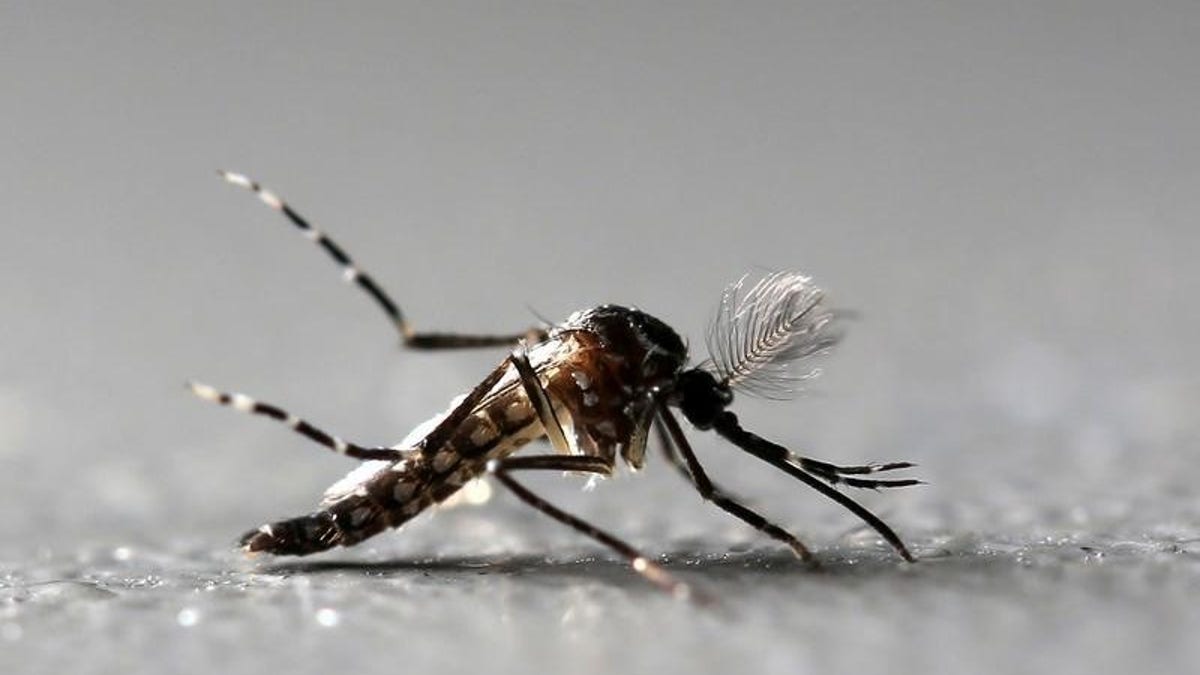
Genetically modified male Aedes aegypti mosquitoes are pictured at Oxitec factory in Piracicaba (Copyright Reuters 2016)
RIO DE JANEIRO – Brazilian health officials say they do not expect a second wave of widespread Zika infections similar to that of a year ago, despite warming temperatures causing a rebound in reproduction of the mosquito responsible for transmitting the virus.
Zika, which has spread to almost 60 countries around the world, continues to infect people across Brazil, where more than 200,000 diagnoses have been reported since the beginning of the year.
But prior infection - starting as early as 2015, before local physicians had recognized Zika's arrival in Latin America - may now have led to a greater degree of immunity in areas like Brazil's northeast, where the outbreak was first detected and is believed to have been most severe.
Coupled with sustained efforts to combat spikes in the mosquito population, authorities say that greater immunity should prevent another intense epidemic of the sort that rattled Brazil from late 2015, particularly after Zika was linked to a surge in birth defects and other neurological complications.
"We are expecting a decrease," said Eduardo Hage, the director of epidemiology for Brazil's health ministry, in a telephone interview on Thursday.
Still, Hage warned that the virus is so little understood and difficult to track in epidemiological terms that a full comparison with last year, let alone a definitive prediction for the months ahead, is impossible.
For one, Brazil does not know exactly how many people may have contracted Zika, a virus that does not even cause symptoms in a majority of those who get it, or where.
Government researchers guess that as many as 1.5 million may have been infected before authorities even began counting diagnoses.
Rio de Janeiro, where a dense urban population and a blistering summer create conditions favorable to the Aedes aegypti mosquito, is believed by some researchers to have had a big outbreak, possibly before the northeast, but doctors at the time were not yet tracking Zika.
And now, with summer approaching in populous southern states, doctors and public health officials admit they could face more of a challenge than expected if weather gets excessively hot or humid, making it harder to fight the mosquitoes, which also carry viruses that cause dengue and other tropical illnesses.
"It's likely that we'll see less infection but there are too many variables to know for sure," says Pedro Vasconcelos, director of the Evandro Chagas Institute, a research facility for tropical diseases in the northern city of Belem.
He and other scientists say that despite greater immunity in parts of the country, people could remain susceptible in areas like São Paulo, Brazil's biggest city, that are not believed to have been exposed as much as Rio and the northeast.
"Even if overall there is increased exposure, you could still get new clusters," says Mauricio Lacerda Nogueira, a virologist at the Sao Jose de Rio Preto medical school, near São Paulo.
Meanwhile, scientists in Brazil and beyond continue to grapple with one enduring mystery - the concentration in the northeast of birth defects among children of mothers who were infected while pregnant.
Of the 2,063 confirmed cases reported so far in Brazil of microcephaly, a birth defect marked by smaller-than-usual head size that can lead to developmental problems, more than two-thirds of the cases are in the northeast.
In Rio and other areas where Zika caused big outbreaks, the proportion of microcephaly cases is much lower, leading scientists to theorize that local variables, like other pathogens or environmental factors, worsened the complications in the northeast.
